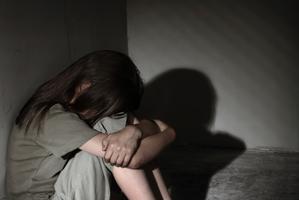|
Child sexual abuse: Enough evidence for 1000 hearings
By Simon Collins
The head of an Australian royal commission into child sexual abuse says he has uncovered enough material to justify public hearings on more than 1000 institutions where child sexual abuse has been alleged. Justice Peter McClellan, who leads the five-year royal commission, told a child abuse conference in Auckland today that institutions were already responding after hearings on 25 institutions so far. "We are driving change, for example, in the whole daycare/after-school care sector in Australia," he said. "We are driving changes in the rules in all boarding schools. We are driving change, starting at the very top, in the whole sporting movement connected with the Olympic movement in Australia. "How do I know that? Because the secretary of the Australian Olympic Committee rang me up as we were finishing a public inquiry into swimming in Australia and said, 'I need your help, I don't have the right processes to manage."' The royal commission was set up by former Prime Minister Julia Gillard in 2012 with a massive budget of A$434 million (NZ$443 million) over four years. Despite this, Justice McClellan said he did not have the resources to hold public hearings on 1000 institutions, but would select enough to cover all the kinds of institutions where child sexual abuse was alleged and all parts of Australia. He is currently chairing hearings on the best way to provide redress to child sexual abuse survivors. His commission has proposed a national redress scheme backed by the federal and state governments, but Prime Minister Tony Abbott's federal government opposes the idea. "Whether or not government will take up that redress I don't know, but I know all of the major institutions - church and beyond - have joined us in saying we would like there to be such a scheme," Justice McClellan said. He said the commission was also working on rules that institutions could adopt to ensure that child sexual abuse did not happen. "There are arguments about whether there should be a regulatory process provided by government or by voluntary arrangements that would provide that institutions will have to conform to the rules in the way they conduct themselves in order to be eligible for subsidies and government money, and to be able to 'market' their services, so to speak, to the general community," he said. "They will be able to say, 'We have been audited and we meet child-safe obligations in the way we conduct our business and the way we run our facilities." In New Zealand, last year's Vulnerable Children Act requires police checks on everyone who works with children in a state or state-funded agency from July 1 this year for new "core" workers, who sometimes work with children unsupervised, and from July next year for "non-core" workers who are always supervised. All existing workers require the checks by July 2018 for core workers and a year later for non-core workers. Police programme manager Alice Greer urged agencies at the conference not to request police checks for all 280,000 workers believed to be covered by the new law all at once. "We vet 500,000 people a year. If we had 280,000 vulnerable children's workers come in the first year, we would break," she said. "I strongly urge you to take the full three and four years that you have for your existing staff. That way we can provide you with a good service."
|
.
Any original material on these pages is copyright © BishopAccountability.org 2004. Reproduce freely with attribution.
